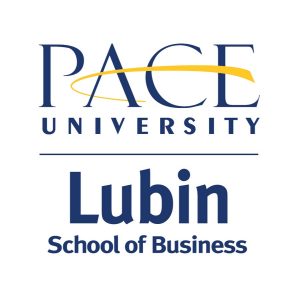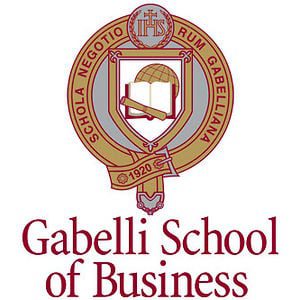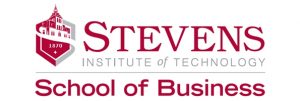Made in Italy and NYU Stern: James & Salvatore Ferragamo

When it comes to Italian high-fashion, names like Gucci, Versace, and Prada often come to mind. These companies, known for their quality products and timeless brands, are staples in both the fashion and business communities. Salvatore Ferragamo S.p.A., another Italian fashion company, is notable for not only their quality leather and fine wine, but also for their leadership, namely twin brothers and NYU Stern School of Business MBA graduates James and Salvatore Ferragamo.
All in the Family
James and Salvatore followed the footsteps of their father and company CEO Ferruccio, and grandfather Salvatore, who founded the brand in 1928. The company’s current structure features each of the founder’s six sons and daughters with a role on the board of directors, with other relatives also taking jobs within the organization.
However, the Ferragamo clan decided that only three members from the family’s third generation should be involved in the family business. These three members were required to have a university degree, an MBA, three years of working experience outside of Ferragamo, and English and IT skills. James and Salvatore accepted this challenge: Both graduated from NYU’s Stern School of Business with a BS in 1993 and again with an MBA in 1997.
What have the two Ferragamo heirs and Stern MBA alumni been up to lately? Both have been utilizing their strengths to push the Ferragamo brand to new heights in different ways.
Expanding “Made in Italy”
James is currently the Director of Women’s and Men’s Shoes and Leather Goods for the Salvatore Ferragamo Group. His responsibilities include overseeing all categories from bags to belts, with a focus on shoes. He briefly worked at Goldman Sachs before completing his MBA in 1997 and joining the family business. James was the first member of the third-generation Ferragamo’s to enter the business.
According to James, a big part of innovation is collaboration. Since 2010, all leather goods collections have been created side by side with the brand’s creative director, Massimiliano Giornetti. Together, James and Massimiliano have pushed Ferragamo into modern territory, while still respecting the brand’s heritage.
YOU MAY ALSO LIKE: Supply Chain Management MBAs: The Best New York Programs
“Together, we need to communicate Ferragamo’s creativity,” James told the South China Morning Post. “For Massimiliano, he pushes on the accelerator of creativity and creates novelty with the ready-to-wear. My role is to try and make sure that we have quality and never compromise on it.”
Ferragamo has always prided itself on being “Made in Italy” and James says that will remain the brand’s headlining message, even as it expands into new markets like China. “No matter what, all our products will always be made in Italy,” he said, doubling down on his decision to keep all production inside of Italy in the near future. “My father had a very rigid point of view on this. Italy, to us, represents a certain uniqueness, and people love this idea of artisanship.”
Resurrecting Il Borro
Instead of following the career trajectory of the rest of his family, Salvatore followed his true passion: wine.
“[My brother James] likes fashion, and I like wine, so it worked out perfectly,” Salvatore told The Drinks Business.
Since graduating from Stern’s MBA program in 1997, Salvatore has been tasked with expanding Ferragamo’s brand portfolio into wine and agro-tourism at Il Borro villa. The Ferragamo family purchased the Tuscan vineyard in 1993 and Salvatore has led efforts to restore the estate and innovate the wine production business, while always sticking to the family’s commitment to being “Made in Italy.”
“Fashion and wine are both a question of lifestyle, personal taste, and sensibility,” Salvatore told Wine Enthusiast. “When I was growing up, I was surrounded by a spirit of fine craftsmanship and careful attention to details that are the hallmarks of ‘Made in Italy.’ My family has always believed that this approach is the best way to express creativity, tradition and quality, and it’s true in both fashion and wine. For example, all of the grapes that go into our wines are carefully chosen by passionate hands that give each bottle its own character.”
In September, Salvatore revealed that Il Borro is producing an amphorae wine made with Sangiovese with the skins kept in contact with the clay vessel for one year. The clay is sourced locally and is made by a local amphorae maker. The wine “Unlike French oak, amphorae doesn’t give the wine notes of tobacco or spices, it focuses more on the fruit notes of the wine,” he said. Salvatore added that he is also experimenting with “a secret project” — a Chardonnay made with the same method.
Reflecting on NYU Stern
In 2006, James and Salvatore invited a group of Stern alumni to their flagship Fifth Avenue store. At the event, the Ferragamo twins were asked how studying at NYU Stern and working in New York helped them as they entered the business world.
“NYU helped me to balance my professional experience with my academic experience,” James said. “Living and working in New York City provided the opportunity to understand the practical application of what I learned, as both a graduate and an undergraduate, whether it was about finance, fashion, marketing, or advertising.”
“Studying in New York gives you the unique opportunity to learn in the business capital of the world and to be in contact with people from different countries, cultures, and businesses,” Salvatore said. “This is very important as I am promoting Il Borro estate worldwide, and it is crucial to understand, recognize, and respect different cultures when entering into any type of global business relationship.”
Fashion and Future at Stern
Recently, alongside the new Tech MBA, the Stern School of Business introduced the forward-thinking Fashion & Luxury MBA, which features several high-profile figures on its advisory board from the likes of Dolce & Gabanna, Tiffany & Co., Nike, Vogue and more.
For more information on the NYU Fashion & Luxury MBA, click here.
Looking At New York City’s Best MBA Return on Investment, Pt. II

New York City is an obvious choice for budding entrepreneurs, consultants, and financiers to find their footing.
Manhattan is regularly called a playground for the wealthy, with a 2016 Newsweek article playfully and indiscriminately dubbing rich people New York’s new urban blight. So, if you’re one of the millions of people hopping into New York to extract its cultural and financial resources for personal gain before migrating to some more humane province, why not do an MBA there while you’re at it?
The proximity of New York business schools to the city’s wealth of opportunities means that MBAs have a kind of access that make b-schoolers elsewhere in the country—and the world—salivate. New York’s matchless combination of industry, culture, and strategic location means that any one of the numerous business schools that populate the region will give MBAs a veritable nitrous boost when it comes to post-graduation job placement. In fact, earlier this month we covered five other NYC MBA programs that give graduates the best return-on-investment.
You’ve surveyed the best so let’s try the rest! While Part 1 was populated by the most elite and therefore more expensive MBA options in the region, Part 2 focuses on New York programs that are more practical choices if you’re doing business school on a budget. These programs tend to offer comparatively smaller returns-on-investment but the advantage is their affordability.
So, let’s take a deeper dive into four more New York-area MBA programs that offer the best returns-on-investment for graduates.

Lubin School of Business — Pace University
The Lubin School of Business counts Hearst Magazines president Michael Clinton ’83, HBO Chairman and CEO William C. Nelson ’75, and former Chairman and CEO Ivan G. Seidenberg ’81 among its notable alumni. With tuition for Lubin’s two-year full-time MBA priced at $71,340, the program qualifies one of the mid-range options on our list. MBAs graduate with an average salary-to-debt ratio of 68 percent culled from average debt of $44,076, according to U.S. News & World Report, and an average base salary of $64,425.

Gabelli School of Business — Fordham University
Notable Gabelli School of Business notable alumni include UnitedHealth Group CEO Stephen J. Hemsley, ’74; former JP Morgan CEO Maria Elena Lagomasino ’77; Countrywide Financial Corp Co-Funder, Chairman, and CEO Angelo R. Mozilo ’60; and Empresas Polar CEO Lorenzo Mendoza. At $87,807 for its two-year full-time MBA, Gabelli’s tuition is among the priciest on our list but the handsome 53 percent salary-to-debt ratio makes up for it. MBAs graduate with an average debt of $51,870 and go on to earn an average base salary of $97,404.

Tobin School of Business — St. John’s University
The Tobin School of Business at St. John’s University is one of the most affordable MBA programs on our list, with tuition priced at $43,740 for its two-year full-time MBA. Tobin MBAs graduate with an average debt of $28,291, which when set against their $59,276 average base salary, yielding a 48 percent salary-to-debt ratio.

Stevens Institute of Technology School of Business
Recent noteworthy employers of the Stevens Institute of Technology School of Business MBAs include ExxonMobil, Goldman Sachs, Johnson & Johnson, JPMorgan Chase, L’Oreal, Lockheed Martin, Microsoft, Tishman Realty & Construction Co., Turner Construction, UBS Financial, and Verizon. Although tuition is priced at a competitive $68,988 for its two-year full-time MBA, Stevens actually has the highest salary-to-debt ratio of any school on our list, at 72%. Stevens MBAs graduate with an average debt of $48,244, according to CNN Money, and go on to earn an average base salary of $67,100.
Finding the Best Return on Investment for Your MBA in Washington DC (Part II)

Washington DC is littered with powerful people and exciting opportunities. You could find yourself sitting next to the Fed Chair at the symphony and then running into a Senator at the bar later that evening. So, what better place to start your business education and career than the true seat of power for the entire Western World?
Before investing in an MBA it’s essential to make sure that the school you choose will give you the tools you need to excel in your industry without breaking the bank.
In our first installment to the Washington DC ROI series, we talked about the metro’s schools that give you the greatest bang for your buck. In part two, we delve into even more schools that have topped our list of programs that offer the best return on investment (ROI) for your MBA in DC.
The Best Washington DC Return on Investment (Part II)
Kogod School of Business—American University
With alumni who’ve gone on to positions such as CEO of Goldman Sachs and Executive VP of Turner Classic Movies, it is no secret that Kogod School of Business prepares its students for a range of highly coveted leadership positions. The average starting salary for MBAs is $78,556, which exceeds the $75,166 cost of tuition. Moreover, an average 88 percent MBAs receive job offers within three months of graduation. The full-time MBA is a 49-credit program that lasts for 21 months. Most of the courses are completed during the first year. Kogod’s program includes weekly Business Leadership Luncheons, wherein students can engage in personal conversations with senior executives from companies like Marriott International, IBM, and PayPal.
George Mason University School of Business
At the George Mason University School of Business, students can hone their leadership and management skills while gaining perspective on the intricacies of the ever-changing world of international business. Business school students at Mason can choose to take their classes at either the Arlington or Fairfax campus, both of which are easily accessible from Washington DC. For aspiring MBAs based in Virginia, Maryland, or the capital, this school’s return on investment is undeniable. Residents of the aforementioned areas pay a full tuition of $45,600, and the average salary for graduates is $86,000. Though the tuition is significantly higher for students from outside of Virginia, Maryland, and DC, at $84,072, the significant average salary still makes stellar choice. The 48-credit program involves an optional week-long global residency, offered once students complete the core curriculum. In the past, global residency locations have included places like Singapore, Buenos Aires, and Prague.
Check Out Part 1: Return on Investment – Getting Your Money’s Worth in Washington DC
McDonough School of Business—Georgetown
There is no denying the prestigious reputation of Georgetown’s McDonough School of Business, which was recently named by Forbes as one of 35 best business schools in the U.S. Students in this program have the opportunity to experience real-world work problems through the Global Business Experience, during which they consult with an international company. At the Global Business Conference in DC, students then present their projects to an audience of their peers. A Georgetown degree carries enormous weight, and in recent years the average starting salary for MBA grads has leapt to a remarkable $108,000. The Georgetown name, combined with rigorous curriculum, a prime location in the nation’s capital, and the undeniable financial success of its alumni make McDonough’s overall return on investment undeniable.
Hispanic Business Student Association at Bauer Receives Top Honor

The C.T. Bauer College of Business at the University of Houston chapter of the Hispanic Business Student Association was recently honored as one of the top student chapters across the country.
Students in the Bauer chapter of HBSA recently attended the Association of Latino Professionals for America (ALPFA) convention in August, where groups from universities across the nation had gathered together in Las Vegas. Alejandra Requena, C.T. Bauer student and HBSA president in the spring, helped to coordinate a trip for 40 members to travel to the Vegas convention. It was here that the students were honored as the top HBSA chapter in the region, and one of the top four in the nation.
“I think what sets us apart is that we really care about our members and our members care about each other,” Requena said on news of the new honor. “Not only have we provided preparation for our members throughout the semester on how to build résumés, network, and develop leadership skills, but we also have members who genuinely want to help each other.”
During the convention, four Bauer HBSA members also had the opportunity to participate in a case competition sponsored by KPMG. The team, which consisted of three accounting students and one finance, was advised on their presentation by Clinical Professor Michael Newman, who helped them to take second place over all, ahead of 23 other teams.
The convention also provided students with the chance to network with business professionals, which yielded tangible results for many students. After the convention, several students walked away with full-time offers from companies like Wal-Mart, Goldman Sachs, and Deloitte.
Vault’s Top Investment Banks for MBAs to Work for in 2018

While a career in investment banking may not be as highly sought after anymore among MBAs, it’s still a fairly popular option. And according to a U.S. News interview with Jeff McNish, Assistant Dean of the Career Development Center at the University of Virginia’s Darden School of Business, investment banks and consulting firms are raising their compensation offers to draw in more students. These companies are willing to pay a premium to draw MBA talent. The question is, which are the best investment banks to work for?
Vault Banking 50 recently released its annual ranking of the best investment banks in North America. The list was compiled through a survey of 2,400 banking professionals and used a weighted formula to review such issues as quality of life—including culture, satisfaction, work/life balance, training, and compensation—and overall prestige.
This year, Goldman Sachs took the #1 spot—with a score of 8.380—maintaining its title of “best investment bank to work for.” Coming in at a close second was Evercore (8.311), followed by Centerview Partners (8.308), and Morgan Stanley (8.114).
The top 10:
- Goldman Sachs
- Evercore
- Centerview Partners
- Morgan Stanley
- Moelis & Company
- Greenhill & Co.
- Lazard
- Perella Weinberg Partners
- Bank of America
- PJT Partners
Goldman Sachs Still #1
This was the second year in a row that Goldman Sachs took the top spot, with survey responders saying such things as: “The firm is extremely focused on improving work/life balance. In the time that I’ve been here, I’ve seen a tremendous difference, not only as a result of formal policies but also in the culture and mindset of those who work here.”
Respondents also said that Goldman Sachs provided workers with various benefits including “exposure to talented, thoughtful, respectful colleagues” and “challenging, intellectually stimulating assignments.” Even respondents at Goldman Sachs’ competitors had mostly nice things to say. They called the firm “a finance machine” and “the gold standard.”
Other elements that set Goldman Sachs apart include its protected-weekend-day policies for junior bankers, no-working-past-midnight policies for interns, and fast-track promotions. It was also one of the first banks to provide a modern performance review system as well as to implement video interviews during on-campus recruiting.
Other Investment Banks Making Waves
As for Evercore, it rose two places in 2018 from #4 to #2. Much of its rise in placement was due to its increase in prestige as well as the company’s focus on a better working environment for its employees. In fact, Evercore came in first place in two areas: formal training and informal training.
As for what some of the survey respondents had to say about Evercore: “We have an outstanding, very teamwork-oriented, and collaborative culture. The firm is filled with very intelligent people treating each other with respect and working together to give clients the best advice possible. The atmosphere is very positive—lots of high fives on wins and no dressing-down calls if you miss a piece of business.”
In third place, Centerview Partners is a small boutique investment banking firm. Insiders stated that the firm is filled with “extremely talented, smart, and thoughtful senior bankers” and that “deal opportunities are unparalleled.”
Another boutique investment bank to make it to the top of the list was Moelis, which ranked fifth. The firm rose four places this year thanks to its “great culture” and “smart dedicated people.”
Investment Banks Focused on Diversity
The Vault Banking 50 also measured firms’ focus on diversity. Loop Capital Markets led the way for the second year in a row, coming in first for overall diversity, minority diversity, female diversity, and LGBT diversity. However, following close behind were Evercore (which placed #2 in overall diversity, female diversity, and minority diversity) and Goldman Sachs (which placed #3 for overall diversity, minority diversity, and LGBT diversity).
To see the full report, visit the Vault.com.
This article has been edited and republished with permissions from Clear Admit.
Kogod Introduces New Graduate Certificate in Islamic Finance

American University has launched a new graduate certificate at the Kogod School of Business: the Graduate Islamic Finance Certificate.
The new program was founded by Professor Ghiyath Nakshbendi. He held his first Islamic finance conference at Kogod in 2009 and created two classes on the topic afterward. Following feedback from Kogod’s students and faculty, Nakshbendi officially launched the program for the fall 2017 semester.
“This program offers a special opportunity to become an educational leader in the field,” Nakshbendi says. “I’m excited for what lies ahead.”
Students in the Graduate Certificate in Islamic Finance program can expect:
- Business courses, such as Financial Accounting and International Finance
- Economics courses, such as Economics of the World Regions
- Mathematics-focused courses
- Guest lecturers who offer students real-life perspective from the business world
Nakshbendi has an all-star line up of speakers for the program’s inaugural semester, including CEOs, lawyers, and high-profile Islamic finance professionals from Kuwait, Doha-Qatar, and Bahrain. “I make a point of inviting guest speakers who can help my students with job prospects,” Nakshbendi said.
It’s all about networking for Nakshbendi, and he hopes that his program will attracting Islamic finance professionals to Kogod. His “ultimate goal” is that these professionals will bring their work experience and job contacts with them. Nakshbendi told Kogod that he hopes to place his students at places like Citibank or Goldman Sachs.
Along with launching the Graduate Islamic Finance Certificate, Nakshbendi also founded the American Center for Alternative Finance (ACAF), a non-profit that promotes Islamic Finance and other alternative finance methods in the United States.
Through seminars and conferences, ACAF offers students opportunities to network and gain experience outside of the classroom. Nakshbendi says the organizations helps provide “great supplemental experience” for students.
Nakshbendi hopes the Certificate program is a conduit for success. Outcomes are his priority, and he wants to ensure students are flourishing after graduation.
